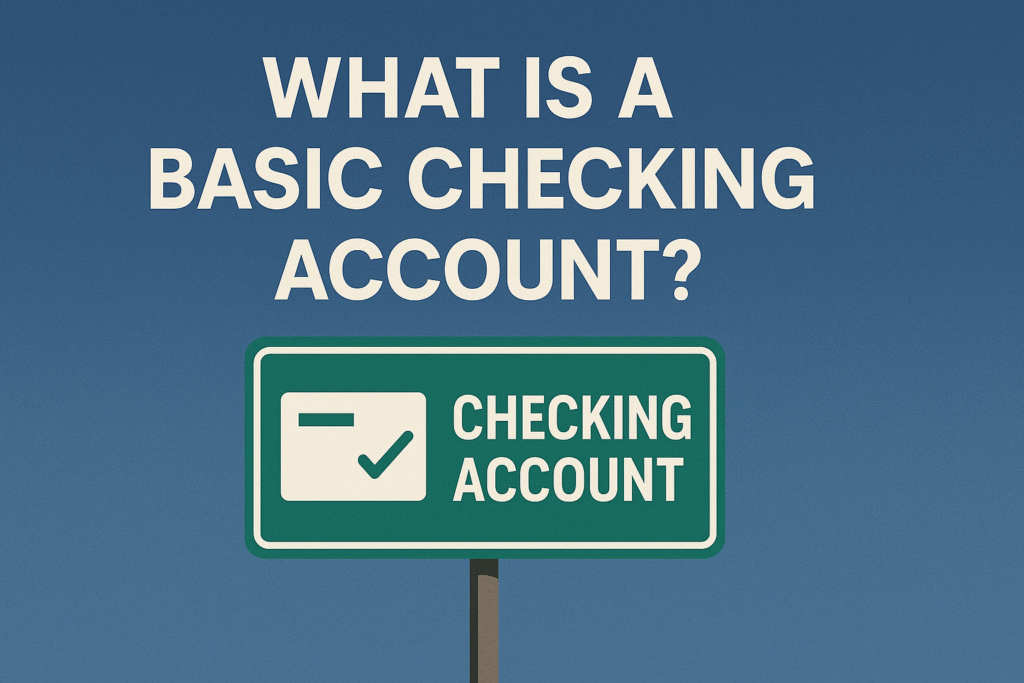When it comes to managing your everyday finances, having the right bank account is crucial. One popular and straightforward option is a basic checking account. This type of account offers a simple way to access and use your money for daily expenses, bill payments, and cash withdrawals without complicated features or high fees.
In this article, we’ll explain what this account type is, who it’s designed for, its benefits and drawbacks, and how to choose the best option for your needs.
Understanding Checking Accounts
A checking account is a bank account designed primarily for frequent access to funds. Unlike savings accounts, which are meant for storing money over time and earning interest, these accounts focus on making transactions easy and quick. You can use them to pay bills, make purchases with a debit card, write checks, and withdraw cash.
Many banks offer a range of checking accounts with varying features. At the simplest level are accounts that focus on providing just the essentials without extra perks or fees.
Key Features of an Entry-Level Checking Account
A no-frills deposit account typically includes:
Low or No Monthly Fees
One of the biggest advantages is affordability. Many providers waive monthly service charges if you maintain a minimum balance or use direct deposit.
Limited Overdraft Options
Basic accounts often lack overdraft protection, meaning transactions that exceed your balance may be declined, which helps avoid overdraft fees but requires careful spending.
Debit Card and ATM Access
You will usually receive a debit card for daily purchases and ATM withdrawals, although some accounts limit free ATM usage.
Online and Mobile Banking
Even simple accounts generally offer digital banking tools, allowing you to monitor your balance, pay bills, and transfer money via smartphone or computer.
Few Extras
These accounts typically don’t include interest earnings, rewards, or extensive additional services.
Who Should Consider This Type of Account?
This kind of account is best suited for:
New Bank Customers
Ideal for students, young adults, or anyone opening their first bank account due to its simplicity and low cost.
Budget-Conscious Individuals
People wanting to avoid banking fees find this account type appealing.
Seniors and Low-Income Clients
Some financial institutions offer versions tailored for seniors or those with limited income to provide affordable banking access.
Those Avoiding Overdraft Fees
Without overdraft protection, these accounts help prevent costly overdraft charges.
Choosing the Right Account for Your Needs
Even among basic accounts, options vary. Consider these factors before deciding:
Fee Structure and Balance Requirements
Check whether monthly fees apply and if there are minimum balance requirements to avoid charges.
ATM Access
Look for a bank with a wide ATM network or reimbursement for out-of-network fees.
Digital Tools
Ensure the bank offers easy-to-use online and mobile banking features.
Customer Service
Good support can be important, especially if you’re new to banking.
Overdraft Policy
Know how the bank handles transactions when funds are insufficient.
Pros and Cons of No-Frills Accounts
Pros
- Low or no monthly fees
- Easy to manage
- Ideal for everyday spending
- Helps avoid overdraft fees
- Usually includes digital banking access
Cons
- No interest earnings
- Limited rewards or perks
- May restrict certain transaction types
- Some services may incur extra fees
Alternative Checking Account Types
If you want more features, consider:
Interest-Bearing Accounts
These pay interest but often require higher minimum balances.
Rewards Accounts
Offer cashback or bonuses for certain activities but may have fees.
Online-Only Banks
Provide low-cost accounts with modern features but no physical branches.
Conclusion
A basic checking account is a practical choice for anyone seeking an affordable, simple way to handle daily finances. Its straightforward nature, low fees, and accessibility make it especially suitable for first-time bank users, those on tight budgets, or people wanting to avoid overdraft charges.
Before opening an account, evaluate your banking habits and compare different offers. The right account will support your financial goals without unnecessary costs or complications.

